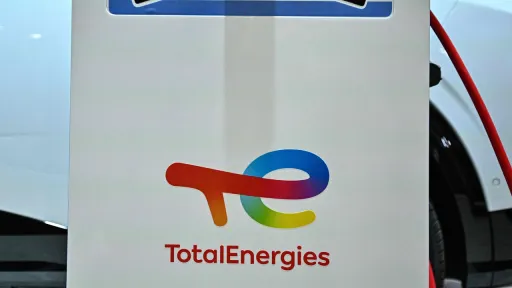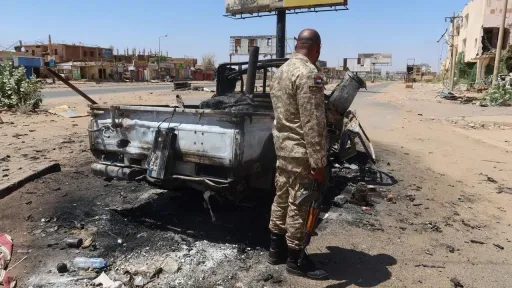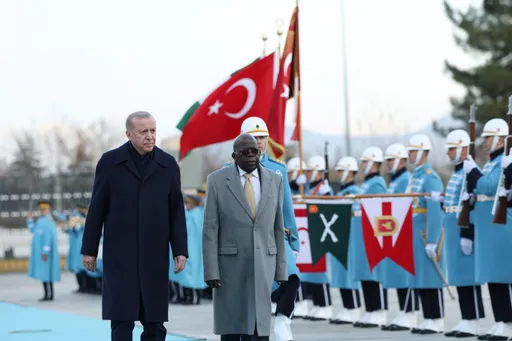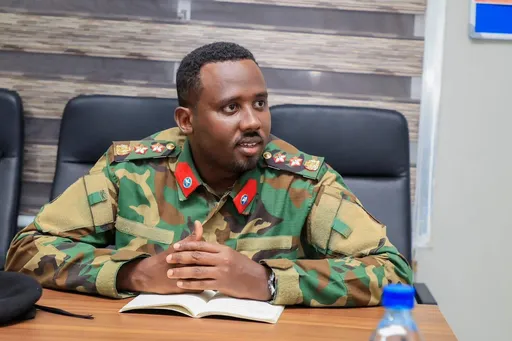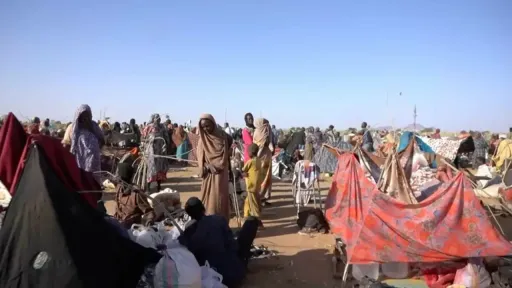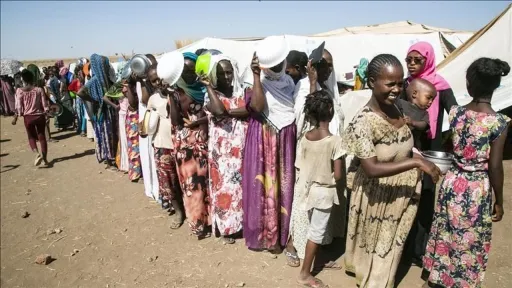Until his sentencing to death on September 30, 2025, the government of the Democratic Republic of Congo (DRC) had repeatedly linked former President Joseph Kabila to the "atrocious activities" of the M23 rebel group.
These speculations swirled even more when Kabila, who had been outside DRC on a self-imposed exile, returned to the country in April 2025 and visited North Kivu province, an area largely under M23 rebel group's control currently.
Before his return to DRC, reports indicated that the ex-head of state had been staying in South Africa since 2023.
Kabila, who has a residence in Goma — the capital of North Kivu province — met several local leaders, including chiefs and the clergy, during his recent return to eastern DRC, a conflict hotspot.
Sentenced to death
Once a high-flying government official, Kabila's whereabouts are currently unknown, and the government that succeeded his administration has passed the severest punishment on him.
In late September, a DRC military tribunal said that Kabila, 53, had been found guilty of several serious crimes, including treason, war crimes, and conspiracy against the state.
Consequently, the military tribunal sentenced the former president to death, although in his absence. Kabila's immediate arrest was also ordered.
Additionally, the court ordered the former head of state to pay $29 billion in damages to the DRC government, and $2 billion each to the war-affected regions of North Kivu and South Kivu in eastern DRC.
Kabila denies charges
According to the sentencing authority, Kabila collaborated with the M23 rebel group in carrying out deadly attacks on the DRC's army, as well as civilian victims in eastern DRC.
Kabila has repeatedly denied the accusations, with his political party terming the charges "politically motivated."
In an opinion article published in a South African newspaper in February 2025, Kabila said the conflict in eastern DRC could only be resolved through dialogue.
He added that the "root causes" of the protracted dispute should be holistically addressed, and not through viewing M23 rebels as "a group of anarchists and proxies of a foreign state without legitimate demands of their own."
Kabila's sentencing 'complicates' peace efforts: DRC professor
M23's rebellion against the Kinshasa government has lasted several years, with no clear end in sight.
Thousands of lives have been lost and even a higher number of people displaced by the conflict in eastern DRC.
Augustin Muhesi, a professor of political science in eastern DRC, says that Kabila's recent sentencing complicates national integration efforts.
"The DRC military court's verdict may galvanise large parts of eastern DRC around Kabila, and he may gain some sort of 'protection', especially when moving in areas currently under the control of the M23 rebel group," Prof. Muhesi tells TRT Afrika.
Peace deal of 2009
"The former president's conviction further complicates the efforts to reconcile DRC's ruling administration and the opposition," Muhesi added.
M23, the short form for March 23 Movement, is a Tutsi-led armed group that seeks its integration into the Congolese army, the protection of the Tutsi communities in eastern DRC, and recognition as a legitimate group.
The M23 rebel group was formed after a 2009 peace agreement between the government of the Democratic Republic of Congo and a previous armed group, CNDP, failed to hold. Some of CNDP's original members founded M23.
Initially aggrieved by the government's alleged failure to honour the 2009 peace agreement, M23 has, in recent times, pressed for territorial control, particularly in the mineral-rich regions of North Kivu province.
Kabila and the alleged links to M23
The group has also repeatedly pushed for the absorption of some of its members into DRC's regular army, and the freedom to participate in national politics.
The M23 group is largely made up of members of the Tutsi ethnic group, which is also present in neighbouring Rwanda. Many of the Tutsis crossed into DRC during the 1994 genocide in Rwanda.
A significant number of the Tutsi members settled in eastern DRC's North Kivu province, the area that M23 seized control of in a major offensive in January 2025.
If the DRC military tribunal's side of the story is valid, then how did Kabila get involved in M23 rebel group's activities?
Political and social roles in DRC
When Kabila came to power in 2001, following the assassination of his father, President Laurent Kabila, he is said to have substantially championed the interests of the Tutsi people.
According to several official records, Joseph Kabila is a member of the Baluba community, one of the largest ethnic groups in DRC, mostly occupying the southern areas of the country. Some reports, however, cast doubt on Kabila's ethnic background.
Members of the Baluba community have historically played major political and social roles in the DRC.
The Baluba ethnic background contributed to Kabila's support base, especially in eastern DRC, where the Tutsis are in large numbers.
'Too close to Rwanda'
Though the two communities are distinct, with different historical backgrounds, languages, and cultural identities, their relationship has largely been cordial, further cemented when Joseph Kabila was DRC's president.
During Kabila's presidency, between 2001 and 2019, he maintained complex relationships with several Tutsi groups and also the government of Rwanda.
Some of Kabila's critics, therefore, viewed him as "too close to Rwanda", which has repeatedly faced accusations — from both the United Nations and DRC — of backing the M23 rebel group. Rwanda rejects the claims.
After 18 years in power, Kabila announced that he would retire as president in 2019. Even with that pronouncement, the constitution did not allow him to seek another presidential mandate.
Collapse of power-sharing deal
The then-opposition candidate, Felix Tshisekedi, won the December 2018 presidential election, defeating candidates initially preferred by Kabila.
Nonetheless, Kabila vacated office and President Tshisekedi took the reins. Initially, the two leaders had a power-sharing agreement that allowed Kabila to propose names for cabinet positions, but President Tshisekedi, 62, ended the alliance in 2020.
The duo's relationship deteriorated thereafter, with President Tshisekedi alleging that Kabila was "sponsoring rebels" against the DRC government.
In November 2021, Tshisekedi's administration launched a corruption investigation against Kabila, who went into a self-imposed exile nearly two years later. In May 2025, DRC's parliament approved the lifting of Kabila's presidential immunity, paving the way for his prosecution.
Political class 'divided'
"Former President Kabila's recent sentencing has divided DRC's political class even more. Some factions support it, while others oppose it," political science professor Muhesi says.
"What we are now waiting to see is whether the arrest order will be effected, and whether the former president's death sentence will be executed. Though, going by previous cases of a similar nature in DRC, it is difficult to see how Kabila's arrest will be made," he added.
The Kabilas are immensely influential in DRC, not only in the country's politics but also its economy. For instance, their business interests span gold, copper, cobalt, and diamond mining sectors, as well as agriculture, banking, and petroleum sectors.
Kabila, a former army chief, came to power at the age of 29 and is credited for stabilising DRC's politics and economy during his rule, but he is now staring at a court-ordered death. Will it be the fall of the once-giant of DRC's politics?











